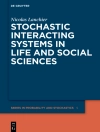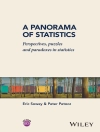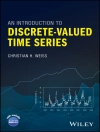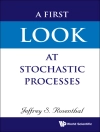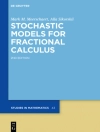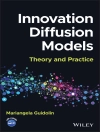The definitive resource for survey questionnaire testing and
evaluation
Over the past two decades, methods for the development,
evaluation, and testing of survey questionnaires have undergone
radical change. Research has now begun to identify the strengths
and weaknesses of various testing and evaluation methods, as well
as to estimate the methods’ reliability and validity.
Expanding and adding to the research presented at the International
Conference on Questionnaire Development, Evaluation and Testing
Methods, this title presents the most up-to-date knowledge in this
burgeoning field.
The only book dedicated to the evaluation and testing of survey
questionnaires, this practical reference work brings together the
expertise of over fifty leading, international researchers from a
broad range of fields. The volume is divided into seven
sections:
* Cognitive interviews
* Mode of administration
* Supplements to conventional pretests
* Special populations
* Experiments
* Multi-method applications
* Statistical modeling
Comprehensive and carefully edited, this groundbreaking text
offers researchers a solid foundation in the latest developments in
testing and evaluating survey questionnaires, as well as a thorough
introduction to emerging techniques and technologies.
สารบัญ
Contributors.
Preface.
1. Methods for Testing and Evaluating Survey Questions (Stanley
Presser, et al.).
PART I: COGNITIVE INTERVIEWS.
2. Cognitive Interviewing Revisited: A Useful Technique, in
Theory (Gordon B. Willis).
3. The Dynamics of Cognitive Interviewing (Paul Beatty).
4. Data Quality in Cognitive Interviews: The Case of Verbal
Reports (Fred G. Conrad and Johnny Blair).
5. Do Different Cognitive Interview Techniques Produce Different
Results (Theresa J. De Maio and Ashley Landreth)?
PART II: SUPPLEMENTS TO CONVENTIONAL PRETESTS.
6. Evaluating Survey Questions by Analyzing Patterns of Behavior
Codes and Question-Answer Sequences (Johannes van der Zouwen and
Johannes H. Smit).
7. Response Latency and (Para) Linguistic Expressions as
Indicators of Response Error (Stasja Draisma and Wil Dijkstra).
8. Vignettes and Respondent Debriefing for Questionnaire Design
and Evaluation (Elizabeth Martin).
PART III: EXPERIMENTS.
9. The Case for More Split-Sample Experiments in Developing
Survey Instruments (Floyd Jackson Fowler).
10. Using Field Experiments to Improve Instrument Design: The
SIPP Methods Panel Project (Jeffrey Moore, et al.).
11. Experimental Design Considerations for Testing and
Evaluating Questionnaires (Roger Tourangeau).
PART IV: STATISTICAL MODELING.
12. Modeling Measurement Error to Identify Flawed Questions
(Paul Biemer).
13. Item Response Theory (IRT) Modeling for Questionnaire
Evaluation (Bryce B. Reeve and Louise C. Mâsse).
14. Development and Improvement of Questionnaires Using
Predictions of Reliability and Validity (William E. Saris, et
al.).
PART V: MODE OF ADMINISTRATION.
15. Testing Paper Self-administered Questionnaires: Cognitive
Interview and Field Test Comparisons (Don A. Dillman and Cleo D.
Redline).
16. Methods for Testing and Evaluating Computer-Assisted
Questionnaires (John Tarnai and Danna L. Moore).
17. Usability Testing to Evaluate Computer-Assisted Survey
Instruments (Sue Ellen Hansen and Mick P. Couper).
18. Development and Testing of Web Questionnaires (Reginald P.
Baker, et al.).
PART VI: SPECIAL POPULATIONS.
19. Evolution and Adaptation of Questionnaire Development,
Evaluation and Testing for Establishment Surveys (Diane K.
Willimack, et al.).
20. Pretesting Questionnaires for Children and Adolescents
(Edith de Leeuw, et al.).
21. Developing and Evaluating Cross-National Survey Insteuments
(Tom W. Smith).
22. Survey Questionnaire Translation and Assessment (Janet
Harkness, et al.).
PART VII: MULTI-METHOD APPLICATIONS.
23. A Multiple-Method Approach to Improving the Clarity of
Closely Related Concepts: Distinguishing Legal and Physical Custody
of Children (Nora Cate Schaeffer and Jennifer Dykema).
24. Multiple Methods for Developing and Evaluating a
Stated-Choice Questionnaire to Value Wetlands (Michael D.
Kaplowitz, et al.).
25. Does Pretesting Make a Difference? An Experimental Test
(Barbara Forsyth, et al.).
References.
Index.
เกี่ยวกับผู้แต่ง
STANLEY PRESSER is a Professor in the Sociology Department
and in the Joint Program in Survey Methodology at the University of
Maryland.
JENNIFER M. ROTHGEB is a Social Science Statistician at
the Center for Survey Methods Research in the Statistical Research
Division of the U.S. Census Bureau.
MICK P. COUPER is an Associate Research Professor at the
Institute for Social Research, University of Michigan, and at the
Joint Program in Survey Methodology, University of Maryland.
JUDITH T. LESSLER is Vice President, Partnership for
Genomics and Molecular Epidemiology, Research Triangle
Institute.
ELIZABETH MARTIN is Senior Survey Methodologist at the
U.S. Census Bureau.
JEAN MARTIN is Director of the Social Analysis and
Reporting Division of the Office for National Statistics, U.K.
ELEANOR SINGER is a Research Professor at the Institute
for Social Research, University of Michigan.






